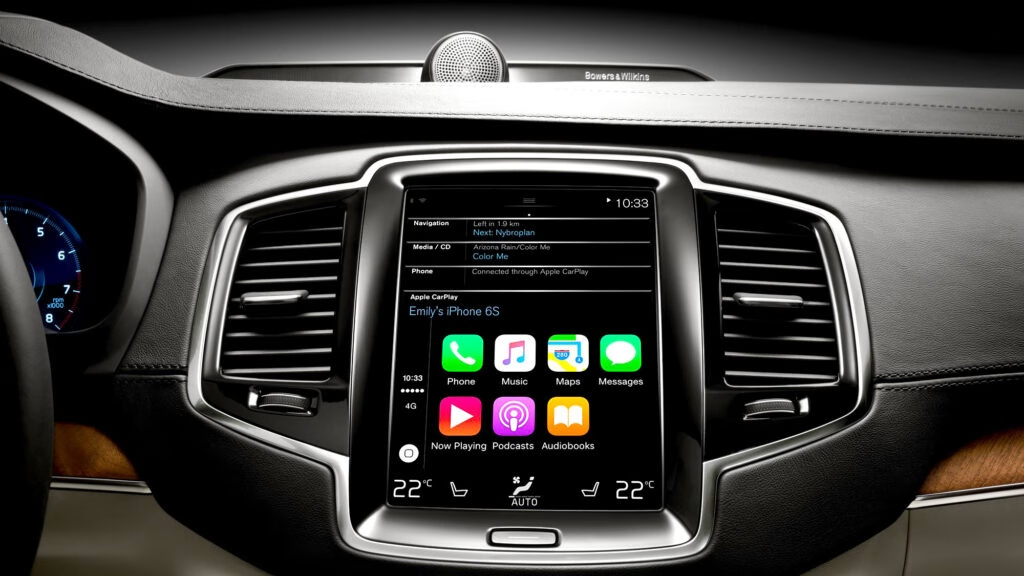What Happened with the Volvo XC90’s Speakers and Why Is It Making Headlines?
Imagine cruising down the highway in your Volvo XC90, only to be jolted by a sudden, ear-splitting noise from the speakers. That’s exactly what Timothy Zajaros, a film producer, says happened to him in September 2022. According to his lawsuit, the sound wasn’t just startling—it was so piercing and relentless that it caused him real pain, leading to permanent hearing loss and tinnitus. For someone whose career depends on sharp hearing, the impact was devastating. He claims the incident even cost him work in the film industry.
The story has captured attention not just because of the unusual nature of the malfunction, but because it raises bigger questions about automotive safety, product defects, and how carmakers handle reports of serious issues. It’s not every day you hear about a car’s sound system allegedly causing lifelong injury.
Why Did the Court Drop Volvo Car USA from the Lawsuit?
Here’s where things get interesting from a legal perspective. Zajaros originally named several Volvo entities in his lawsuit, including Volvo Car USA and Volvo Cars of North America. But the Tennessee court, led by Judge Aleta A. Trauger, dismissed the case against Volvo Car USA. The reason? The judge found there wasn’t enough evidence to show Volvo Car USA was actually responsible for manufacturing the XC90 in question.
The court pointed out that just having “Volvo” in the company name doesn’t make them liable. In fact, the vehicle was manufactured by Volvo Car Corporation in Sweden, not the American subsidiary. This isn’t just a technicality—product liability law hinges on who actually made or distributed the product. Without a direct link, the case against Volvo Car USA couldn’t stand.
What’s the Basis for the Remaining Lawsuit Against Volvo Sweden?
With the American branches out of the picture, the legal spotlight now shifts to Volvo Car Corporation in Sweden. Zajaros argues that the speaker malfunction was due to a manufacturing defect, and that Volvo was aware of the risk but didn’t warn owners or take corrective action. He’s not just seeking compensation for his injuries—he’s also highlighting what he sees as a broader failure in consumer safety.
It’s not the first time Volvo has faced scrutiny over its audio systems. In China, for example, some Volvo owners have complained about counterfeit speakers being installed in their cars, raising questions about quality control and oversight. While that’s a separate issue, it underscores how complex and global the supply chains for modern vehicles have become.
How Common Are Speaker Malfunctions Like This in Modern Cars?
Speaker malfunctions aren’t unheard of, but incidents as severe as the one described by Zajaros are rare. Most commonly, drivers might notice crackling, distortion, or intermittent sound—annoying, but not dangerous. However, there have been isolated reports of sudden loud noises or feedback tones, sometimes linked to software glitches or faulty wiring.
A 2023 report from the National Highway Traffic Safety Administration (NHTSA) found that less than 0.1% of vehicle recalls involved audio system failures that could pose a safety risk. Still, with cars increasingly reliant on complex electronics and software, the potential for unexpected failures is growing. Automakers are under pressure to address these issues quickly—both to protect consumers and to avoid costly lawsuits.
What Should Volvo Owners (and Other Drivers) Do If They Experience a Similar Problem?
If you ever experience a sudden, loud noise from your car’s speakers—especially one that causes discomfort—don’t ignore it. Here’s what experts recommend:
1. Pull over safely and turn off the vehicle if possible.
2. Document what happened: note the time, conditions, and any warning lights or messages.
3. Contact your dealership or authorized service center immediately.
4. Report the incident to the NHTSA or your country’s vehicle safety agency.
Manufacturers are required to investigate credible reports of safety-related defects. If enough similar complaints are logged, it can trigger a recall or service campaign. And if you’re dealing with hearing issues after such an event, seek medical attention right away.
What Does This Mean for Volvo and the Auto Industry at Large?
This case is a reminder that even luxury automakers aren’t immune to unexpected technical problems. As vehicles become more like rolling computers—with advanced infotainment, connectivity, and safety features—the risk of software or hardware glitches increases. The challenge for carmakers is to balance innovation with rigorous testing and transparent communication when things go wrong.
For Volvo, the outcome of this lawsuit could shape how it handles future claims and customer complaints. It also highlights the importance of clear documentation about where and how vehicles are manufactured—a detail that can make or break a legal case.
The big takeaway? Car safety isn’t about perfection—it’s about smarter adjustments. Start with one change this week, like double-checking your car’s recall status or updating its software, and you’ll likely spot the difference by month’s end.

